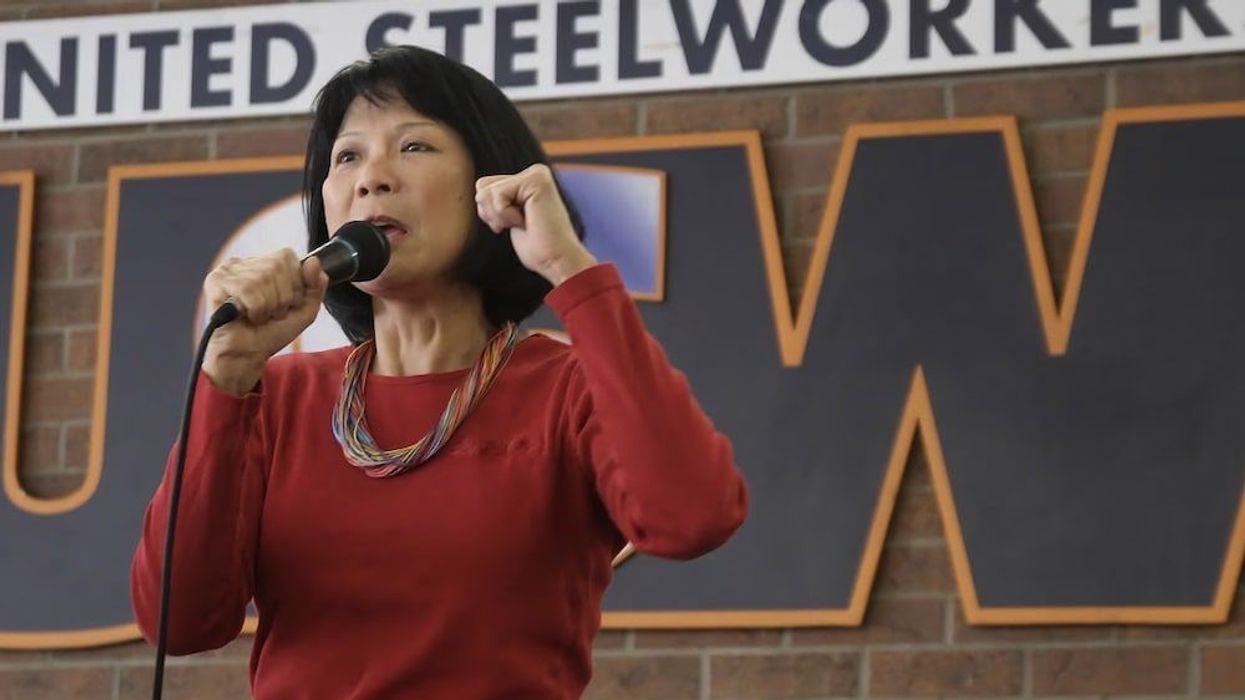“People in Toronto are feeling stuck,” said Toronto mayoral candidate Olivia Chow, when she launched her campaign in mid-April. “They’re stuck waiting for the bus, stuck in traffic, or stuck on lists for housing, childcare, and recreation programs. After a decade of conservative mayors, the city has become more expensive and less liveable for people.”
Since announcing her intention to run in June’s by-election just a month ago, the former city councillor, member of parliament, and school board trustee has quickly emerged as a front-runner in early polling, with Forum Research, Liaison Strategies, and Mainstreet Research all putting her at least at a 30% lead. She has also garnered the endorsement of Gil Penalosa, runner-up in last year’s mayoral election, who has said that Chow is "the right person to bring positive, progressive change" to the city.
With a huge focus on housing affordability this election, it’s not a surprise that Chow’s platform is resonating. In a series of housing-related announcements, Chow has zeroed in on Toronto’s tumultuous rental landscape.
READ: Joe Cressy to Moderate Toronto Mayoral Debate Focused on Housing Crisis
In addition to scaling up the city’s existing tenant support programs (including the Toronto Rent Bank, the Eviction Prevention in the Community Pilot Program, RentSafeTO, and the Toronto Tenant Support Program), Chow has vowed to invest $100M into the purchase and repair of rental apartment buildings, as well as the transfer of rental apartment stock to non-profit, community, and Indigenous housing providers -- a measure meant to help preserve affordable housing and prevent renovictions.
She has also spoken about creating a Toronto Renters Action Committee, a task force dedicated to establishing anti-renoviction bylaws, advocating for real rent control, and reviewing existing policies and programs related to renters.
As well, earlier this month, Chow vowed to build 25,000 rent-controlled homes over the next eight years on city-owned land, including at least 7,500 affordable units and at least 2,500 rent-geared-to-income units.
“The City of Toronto has not built affordable housing for two decades and that has to change,” Chow tells STOREYS. “The survival of a great city depends on how well we take care of each other, and you can't do any of it without people having a roof over their heads.”
If elected, Chow says she intends to construct affordable and subsided units alongside condominiums across the city, using funds from the Vacant Home Tax, which she’s looking to hike to 3%, and a new luxury homes tax that would target less than 2% of home sales each year.
These additional funds would also help to support the city’s existing affordable housing initiatives, including rent supplements, which she hopes to strengthen in a measure to mitigate homelessness -- another a hot topic amongst the laundry list of candidates -- and alleviate some of the pressure on the city’s overloaded shelter system.
Although Chow’s proposed tax hikes have been met with some contention, she stresses that the trade-off would be well worth it; the funds stand to “help make sure thousands more have a place to call home,” which is ultimately good for the city at large.
It’s not lost on Chow that affordable supply needs to come sooner rather than later, and when asked how she plans to get supply off the ground more efficiently, she says she hopes to “batch up" applications, pointing out how hit-and-miss the City’s Housing Now program -- which considers applications individually and has yet to deliver a single affordable housing unit -- has been.
She also touches on her support of as-of-right allowances, which could help to cut down on approval times and encourage the private sector to invest in housing.
In the coming weeks, Chow says we will hear more from her with respect to “the density question.”
“The City has already begun to address gentle density, but I have more to say about having higher density on main streets and along subway routes, transit routes,” she says, adding that building up affordable and denser housing near the transit corridor helps city residents while also cutting down on parking requirement and supporting TTC ridership. “So it's a win-win-win situation. But in terms of precise numbers, stay tuned.”





















